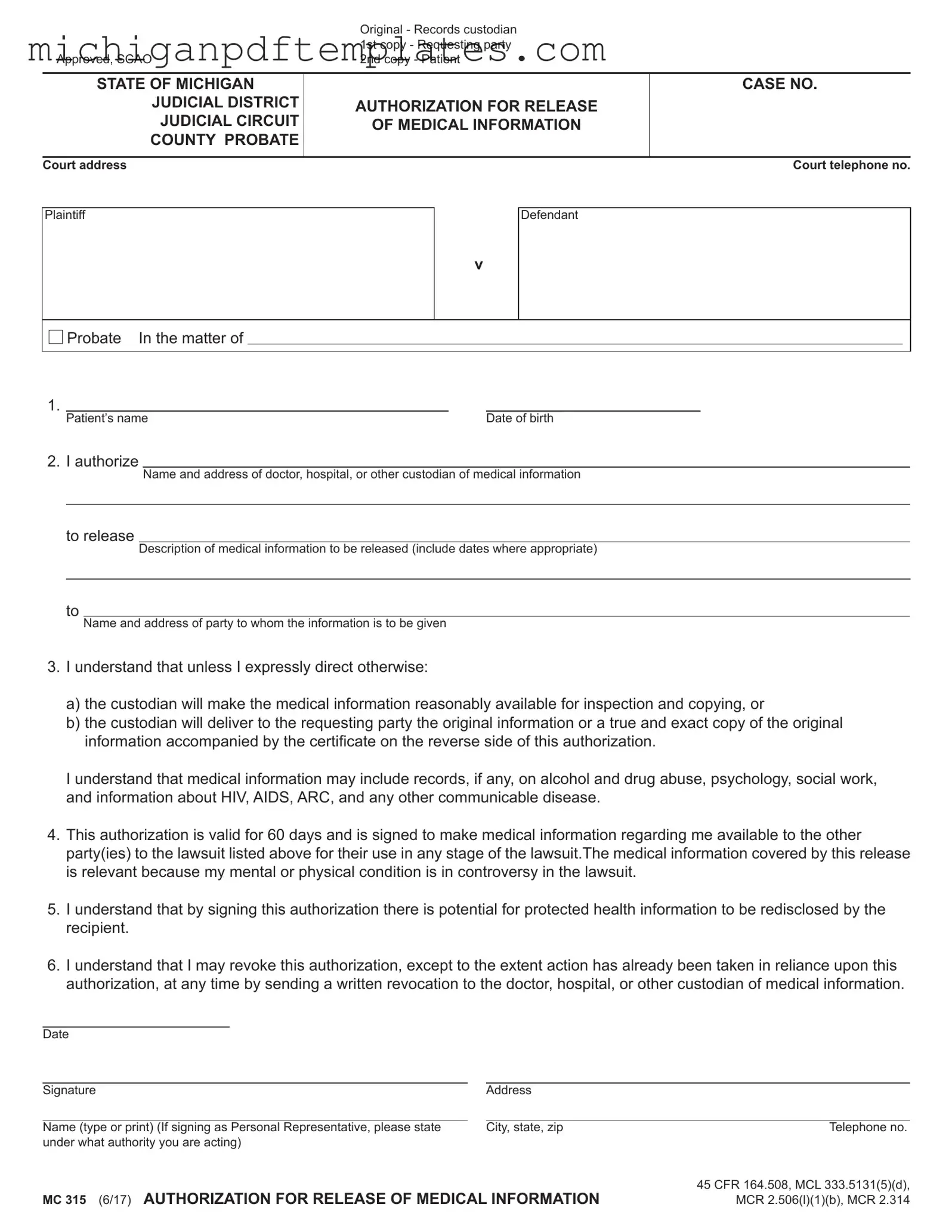Fill in Your Michigan Mc 315 Form
The Michigan MC 315 form is a legal document that authorizes the release of medical information for individuals involved in a lawsuit. This form ensures that the necessary medical records can be shared with relevant parties, facilitating a transparent legal process. To begin the process of obtaining medical information, consider filling out the form by clicking the button below.
Get Your Form Now

Fill in Your Michigan Mc 315 Form
Get Your Form Now

Get Your Form Now
or
▼ PDF Form
Finish this form quickly and move on
Fill in and complete Michigan Mc 315 online quickly.